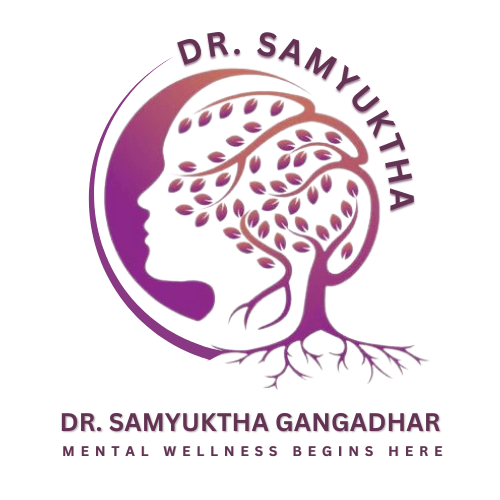- Home
- About Us
- Services
- Team
- Gallery
- Blog
- FYI
- Best Psychiatrist in Bangalore
- Best Depression Doctor in Kolkata
- Best Psychiatrist in Kolkata
- Depression Treatment
- OCD Treatment
- Anxiety Treatment
- Mania Treatment
- ADHD Specialist
- ADHD Treatment
- Treatment for Stress
- Fear Treatment
- Phobia Treatment
- Treatment of Tobacco Addiction
- Alcohol Addiction Treatment
- Anger Issue Treatment
- Relationship Issues
- Managing Frequent Mood Swings
- Behavioral Issues in Children and Adolescents
- Treatments for Lack of Sleep
- Understanding OCD: Comprehensive Treatment Options in Kolkata
- Contact Us
- Home
- About Us
- Services
- Team
- Gallery
- Blog
- FYI
- Best Psychiatrist in Bangalore
- Best Depression Doctor in Kolkata
- Best Psychiatrist in Kolkata
- Depression Treatment
- OCD Treatment
- Anxiety Treatment
- Mania Treatment
- ADHD Specialist
- ADHD Treatment
- Treatment for Stress
- Fear Treatment
- Phobia Treatment
- Treatment of Tobacco Addiction
- Alcohol Addiction Treatment
- Anger Issue Treatment
- Relationship Issues
- Managing Frequent Mood Swings
- Behavioral Issues in Children and Adolescents
- Treatments for Lack of Sleep
- Understanding OCD: Comprehensive Treatment Options in Kolkata
- Contact Us
Home » Mastering Your Emotions: Expert Tips on Managing Frequent Mood Swings
Mastering Your Emotions: Expert Tips on Managing Frequent Mood Swings

Introduction
Mood swings can be overwhelming, affecting both your personal and professional life. Dr. Samyuktha, a renowned psychiatrist, offers expert guidance on managing mood swings through online consultations at Pushpa mindcare. This page provides comprehensive, research-backed information on mood swing treatments to help you regain control of your emotions.
Understanding Mood Swings
Mood fluctuations are sudden, often unpredictable changes in emotional state. They can range from extreme happiness to deep sadness and can significantly impact daily life. Common causes include

- Hormonal Imbalances: Particularly during puberty, pregnancy, or menopause.
- Mental Health Disorders: Such as bipolar disorder, depression, and anxiety.
- Stress and Lifestyle Factors: Including work stress, lack of sleep, and poor diet.
Symptoms of Mood Swings
Identifying mood fluctuations involves recognizing patterns in emotional changes. Common symptoms include:
- Frequent mood changes: Rapid shifts between emotions.
- Increased irritability: Feeling agitated or frustrated easily.
- Emotional outbursts: Sudden, intense emotional reactions.
- Difficulty concentrating: Struggling to focus on tasks.
Life Stages
Mood swings can occur at various life stages, each with its unique triggers and challenges. Understanding these stages can help tailor treatment approaches more effectively.
Adolescence
During adolescence, hormonal changes and social pressures can lead to significant mood fluctuations. Adolescents may experience mood swings as they navigate school, relationships, and identity formation.
Adulthood
In adulthood, mood swings can be triggered by stress, work-life balance, and relationship issues. Life transitions such as marriage, parenthood, and career changes often contribute to emotional instability.
Menopause
For women, menopause is a significant life stage associated with hormonal changes that can cause mood fluctuations. Addressing these hormonal shifts is crucial for managing emotional well-being during this period.
Mood Swings in Women
Women are more prone to mood Changes due to hormonal fluctuations throughout their lives.

Hormonal Changes
Menstrual cycles, pregnancy, and menopause are significant life events that can cause hormonal imbalances, leading to mood swings.
Psychological Factors
Women may also experience mood swings due to stress, anxiety, and depression. Seeking professional help can provide effective strategies for managing these emotional changes.
Mood Swings in Men
While mood chagnes are often associated with women, men also experience significant emotional fluctuations due to various factors.
Hormonal Changes
Testosterone levels in men can affect mood, leading to irritability and emotional instability. Age-related hormonal changes can also play a role.
Psychological Factors
Stress from work, financial pressures, and relationship issues can contribute to mood swings in men. Addressing these factors through therapy and lifestyle changes is essential.
Effective Treatments for Mood Swings
Dr. Samyuktha’s approach to mood swing treatment is holistic, addressing both the mind and body. Here are some proven strategies:
Psychotherapy
Psychotherapy, or talk therapy, helps individuals understand and manage their emotions. Techniques include:
Cognitive Behavioral Therapy (CBT)
CBT is highly effective in treating mood changes by helping patients identify and alter negative thought patterns. This structured therapy can significantly improve emotional regulation.
Dialectical Behavior Therapy (DBT)
DBT combines cognitive-behavioral techniques with mindfulness practices. It is particularly beneficial for those experiencing intense mood swings, helping them develop coping strategies and emotional resilience.
Medication
In some cases, medication may be necessary to manage mood swings. Common medications include:

- Mood Stabilizers: Such as lithium and valproate.
- Antidepressants: For underlying depression.
- Antipsychotics: For severe mood swings.
Lifestyle Modifications
Simple changes in daily habits can significantly reduce mood changes. Recommendations include:
- Regular Exercise: Helps release endorphins, improving mood.
- Balanced Diet: Nutrient-rich foods can stabilize mood.
- Adequate Sleep: Ensures proper brain function and emotional regulation.
Expert Opinions and Research
Recent studies have shown the effectiveness of combined therapy approaches. According to the National Institute of Mental Health (NIMH), combining medication with psychotherapy provides the best outcomes for managing mood swings. Dr. Samyuktha emphasizes the importance of personalized treatment plans, tailored to each individual’s needs.
Statistics and Data
- Prevalence: Approximately 5% of the global population experiences severe mood swing.
- Effectiveness: Patients undergoing combined therapy report a 60% improvement in mood stability.
- Online Consultations: 80% of patients find online therapy as effective as in-person sessions.
Managing Mood Swings at Home
Here are some actionable tips for managing mood swing in daily life:
- Practice Mindfulness: Engage in activities like meditation and deep breathing.
- Stay Connected: Maintain a support network of friends and family.
- Track Your Moods: Keep a journal to identify triggers and patterns.
Why Choose Dr. Samyuktha?
Dr. Samyuktha’s expertise and compassionate approach make her a top choice for mood swing treatment. Her online consultations provide convenient, personalized care from the comfort of your home.
- Experienced Psychiatrist: Over a decades of experience in treating mood disorders.
- Holistic Approach: Combines medical and therapeutic treatments.
- Patient-Centered Care: Focuses on individualized treatment plans.
Book an Appointment
If you are struggling with mood swing and need professional help, Dr. Samyuktha offers online consultations to provide personalized treatment plans. Booking an appointment is easy and can be done through the https://pushpamindcare.co.in/ website.
Frequently Asked Questions (FAQs)
The five common treatments for mood swings include:
- Psychotherapy: Techniques such as Cognitive Behavioral Therapy (CBT) and Dialectical Behavior Therapy (DBT).
- Medication: Mood stabilizers, antidepressants, and antipsychotics.
- Lifestyle Modifications: Regular exercise, a balanced diet, and adequate sleep.
- Mindfulness Practices: Meditation and stress management techniques.
- Support Groups: Engaging with others facing similar challenges for emotional support.
To manage and reduce mood changes, consider the following steps:
- Seek Professional Help: Consult a psychiatrist or therapist for personalized treatment.
- Healthy Lifestyle: Maintain a balanced diet, regular exercise, and proper sleep.
- Mindfulness and Relaxation: Practice mindfulness techniques and relaxation exercises.
- Track Triggers: Keep a journal to identify and manage mood swing triggers.
- Stay Connected: Maintain a strong support network of friends and family.
Mood fluctuations can be a symptom of underlying mental health disorders such as bipolar disorder, depression, or anxiety. It is essential to seek professional evaluation to determine the cause and appropriate treatment.
Yes, diet can significantly impact mental health. Consuming a balanced diet rich in nutrients helps stabilize blood sugar levels and improve overall mood. Avoiding excessive caffeine, sugar, and processed foods can also help reduce mood swings.
Online consultations can be highly effective for mood fluctuations treatment, offering the convenience of accessing professional help from home. Many patients find online therapy as beneficial as in-person sessions, with the added flexibility of scheduling and location.


